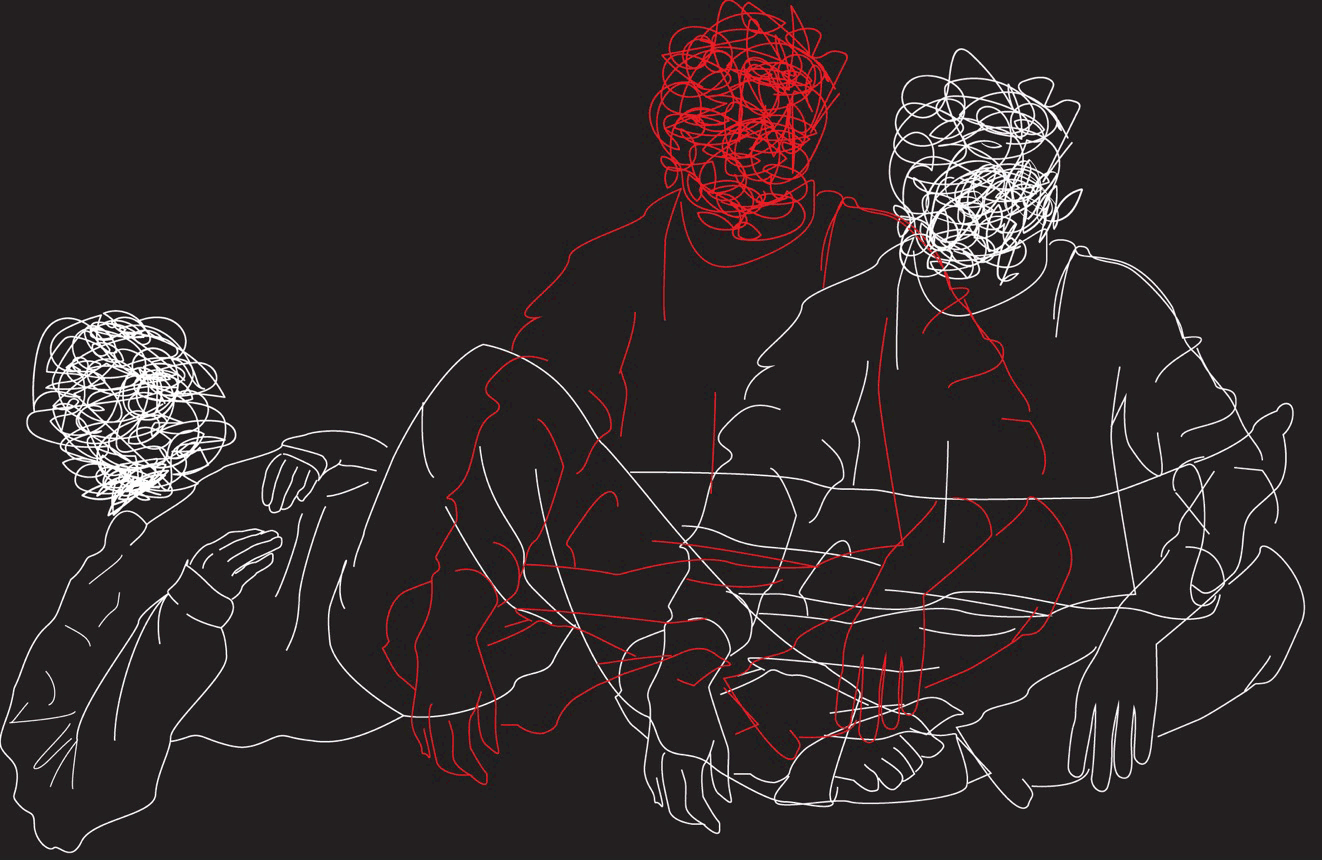Reframing Pain
By Megan Reichel
GIF by Kenzi Rayelle
On October 13th, the audience of around 20 sitting in the Englert Theater heard Sara Knox give a revolutionary talk on pain and suicide as an event for Witching Hour.
As the Volunteer Training Coordinator at The Crisis Center of Johnson County, Knox told us that a few of the most common statements she gets from callers is that they feel like a burden, that the world would be better off without them, that they hate themselves, and that they are ashamed to be the person they are.
She also told us that one of the first things a person will do if someone tells them that they are depressed is try to cheer them up.
This does not work because of what Knox calls “the second arrow.” The first arrow is what has happened. The second arrow is shot by the person because of shame and guilt they feel about what happened. It is what is going on in their head and the things they tell themselves about being burdensome, worthless, etc.
Anyone of any race, gender, or circumstance can feel depressed or suicidal. As Knox stated, “It is not about what is going on in the world, it is what is going on between your ears.”
When a depressed or suicidal person talks about their feelings, it is human nature to push away from their pain so we don’t feel what they feel. Empathy is an amazing human capability, but it causes the empathetic person to feel a portion of their pain.
Instead of letting ourselves feel pain, Sarah explained, we push it away by either trying to cheer up a person or blame them for what is going on. We victim-blame to defend ourselves from feeling pain since we don’t want to feel what they do. This sends the message that it is their fault.
People who are suicidal or depressed, however, have tried to find the solutions and cannot.
Illustration by Kenzi Rayelle
Instead, pain is like lava. Most of us in Iowa have never seen or touched lava, but we have the pre-conception that, upon touching lava, we die instantly. Perhaps this idea, Knox suggested, was carried through the game “The Floor Is Lava.”
That is not the case at all. Lava is not as bad as we think it is, and neither is pain. There are different kinds of pain and different levels on which we feel said pain because different pain has different meanings.
If we get shot, the pain could be unbearable. If we take a bullet for someone we love, perhaps the pain won’t be as unbearable because it has taken on a different meaning.
We all believe pain is bad. We avoid it at every opportunity, but everything good comes with risk. Love comes with so much risk, but we put ourselves through it because the love is worth it. Pure joy only comes through absolute suffering.
The only solution to pain, Knox said, is to let ourselves feel it and to share it. Repressing it only causes more pain, and sharing the pain with someone else through empathy will lessen it. Now, the pain has a new meaning.
The majority of people in the United States believe that the solution to suicide is medication and hospitalisation, but those can only go so far. Medication changes chemicals and hospitalisation is only a temporary solution to a long-term problem and can be a dehumanizing experience, which, as Knox explained and as many people who have been hospitalised for suicide know, often leaves the suicidal person feeling worse and more isolated.
Suicidal people believe that they shouldn’t talk about it anymore. Sarah proposes the idea of normalizing pain instead of pathologizing it so people aren’t afraid to talk about it and feel safe and allowed to talk freely about their true feelings.
Sarah, from the beginning to the end of her talk, sent out a powerful message to anyone in the audience who was struggling. To those who know someone who is struggling, do not overreact and don’t try to cheer them up. Just be there for them. Listen. Comfort.
It only takes ten to 20 minutes of being there for someone to significantly reduce the possibility of them attempting suicide. Sarah wants those who are struggling to know that pain is a good thing to feel because nothing good in life exists without the bad.



